Detailed introduction of The Priory Institute:
Introduction
The Priory Institute is part of the Dominican Convent of St. Mary in the Old Castle of Tallaht, Dublin 24, offering certificate, diploma and degree courses in theology and philosophy.
Overview
Rich courses: In addition to theology and philosophy, courses are also covered in religious studies, education, business, political science, history, medicine, engineering, law, physics, literature, communications, computer science, biology, psychology, sociology, nursing, economics, mathematics, social work, earth science and many other subject areas.
Flexible learning methods: Online learning courses are provided to meet the needs of different students, allowing students to study at their own time and pace.
History and founding time
St. Mary's Convent was founded in Tallaht in 1855, and the Study Room (Studium) of the Dominican Province of Ireland was also established there, starting a long tradition of teaching philosophy and theology.
In 1935, the Study Room became an open comprehensive study room of the Dominican Order.
In 1971 In 1990, it became affiliated with the Faculty of Theology of the Pontifical University of St. Thomas (Angelicus) in Rome and began offering a full-time four-year degree in theology (STB) accredited by the university.
From 1993 to 2001, a part-time diploma in theology was offered.
In 2000, the study room moved to St. Saviour's Monastery in Dublin, and a research center was established in Tallaght, the predecessor of The Priory Institute.
In 2004, The Priory Institute established a partnership with the University of Wales, Lampeter College (later the University of Wales Trinity Saint David), and its honors degree in theology was accredited.
In 2011, The Priory Institute formed a strategic alliance with the Dublin Institute of Technology (ITT Dublin), which has now merged with two other technical colleges to form the Dublin University of Technology. The Priory Institute All academic courses of the Priory Institute are verified by the Dublin Technological University, which is authorized by the Irish Quality and Qualifications Authority (QQI) to award academic awards.
School Strength
Faculty: As an institution with a deep religious and academic background, its faculty should have solid professional knowledge in theology, philosophy, etc., as well as rich teaching and research experience, and be able to provide students with high-quality education and guidance.
Course Certification: Its courses are certified by the Dublin Technological University, which is authorized by the Irish Quality and Qualifications Authority (QQI), which guarantees the quality and recognition of the courses, and also makes the students' academic qualifications highly recognized in Ireland and the European Union.
Teaching Achievements: It has cultivated many talents with in-depth research and professional qualities in the fields of theology, philosophy, etc., and has provided professionals for the religious, academic and related social fields, promoting the development of these fields.
Institutional Nature
The Priory Institute It is an academic institution established by the Irish Dominicans that focuses on education and research in theology, philosophy and other disciplines. It has a strong religious background and academic tradition.
Educational philosophy
It is committed to encouraging theological education and research in the wider community, and making important contributions to the formation of people's theological literacy by providing courses and seminars, especially providing learning opportunities for those who cannot easily obtain such education. The goal is to cultivate students' in-depth understanding and research capabilities in theology, philosophy and other disciplines, and promote academic development and personal spiritual growth.
Key laboratories and disciplines
Key disciplines: Theology, biblical studies, canon law, philosophy and other disciplines are its traditional advantages and key development areas. The teaching and research in these disciplines are of high level and influence. For example, the world ranking of theology is 767, and the history ranking is 793; the world ranking of biblical studies is 188, and the history ranking is 191; the world ranking of canon law is 1175, and the history ranking is 1176.
Key Laboratory: No key laboratory in the traditional sense was found in the school, but the college provides students with online learning resources and learning support services to meet their learning needs, such as library resources, writing guidance, online discussion forums, etc.
Department
No clear division of the school was found, but from the perspective of course settings, it mainly includes the Department of Theology, the Department of Philosophy, etc., and each department has courses of different levels and directions to meet the diverse learning needs of students.
Expenses
Undergraduate courses: The tuition fee for each credit course module is 550 euros, and if you choose to audit a non-credit course module, it is 330 euros. In addition, the paper version of the module textbook is 35 euros each, but auditors can get it for free.
Graduate courses: Application fee 40 euros, first year tuition fee 3170 euros, second year tuition fee 1785 euros, total master's degree tuition fee 4995 euros. The school offers an installment payment plan.
Campus
Location: Tallaght Village, Dublin D24 W410, Ireland.
Campus Environment: The campus is located in the grounds of St. Mary's Dominican Monastery, with a unique religious and academic atmosphere, providing students with a quiet and peaceful learning environment.
Teaching Facilities: Although the school is not found to have large-scale modern teaching facilities, as an institution focusing on theology and philosophy education, it should be equipped with corresponding libraries, classrooms, seminar rooms and other basic teaching facilities to meet students' learning and research needs.
-

Dublin City University
-
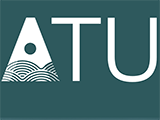
Atlantic Technological University
-
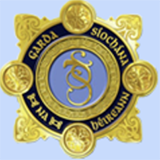
Garda Síochána College
-
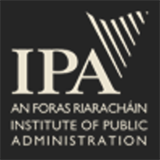
Institute of Public Administration
-
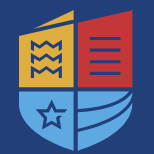
Munster Technological University
-
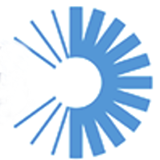
Dublin Business School
-
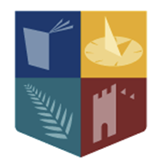
Maynooth University
-
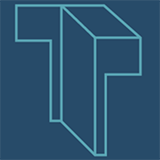
Technological University Dublin
-
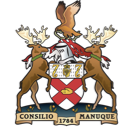
Royal College of Surgeons in Ireland
-

ICD Business School
-

Mesoamerican University
-

Istmo University
-

Mariano Galvez University of Guatemala
-

Regional University of Guatemala
-

Galileo University
-

Francisco Marroquín University
-

Rafael Landívar University
-

University of the Valley of Guatemala
-

University of San Carlos of Guatemala
-

Technological Institute of Tlaxcala Plateau
-

Golfo University
-

Technological University of South Sonora
-

Technological University of Huejotzingo
-

Tizimín Institute of Technology
-

Chilpancingo Institute of Technology

